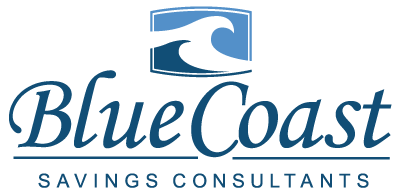Starting a Business – Writing a Simple Financial Plan
Recently we published a blog post about Start-up Business Basics. In that post one of the points we discussed was Writing a Simple Financial Plan. Today we’re going to dig a little deeper into that point.
The financial plan of a business should include cash needs that depend on the requirements of the business relative to its size and factors such as the industry it operates in and any specific relevant market conditions. Some businesses may require less cash, and thus may operate with a small budget, while other businesses may require substantial investments to cover the cost of acquiring an office, equipment, supplies, etc. Indeed, the standard for creating a financial plan for a business is to identify what costs are needed to begin generating a profit.
In the initial stages of developing a financial plan, the estimated startup costs will likely need to cover the first few months. Some of the start-up costs will apply to one-time costs such as the fee for forming an LLC or corporation, and any licenses or permits. Similarly, some of the start-up costs will apply to ongoing costs such as the overhead: office space, computers, utilities, phones and employees.
To form a concise budget, the business plan should consist of first-time and ongoing costs, which are either essential or optional. To enter the market efficiently, a business should strive to only include essential costs necessary to start the business. Essential costs come as either being fixed or variable. Fixed expenses include insurance costs, rent, utilities and administrative costs. Variable costs encompass inventory, packaging costs, sales commissions, shipping costs and other costs affiliated with the direct sale of merchandise or services.
Businesses in need of capital have various options available. Franchises, for example, sometimes offer financing through in-house programs, or partnerships with participating lenders. Since the franchise brand may have already proven profitability under certain conditions, the lending company may be less apprehensive about funding the company compared to conventional circumstances where the profitability of the operation is in question.
Businesses in general also have the following options available to include in the financial plan:
Financing Through a Bank
A loan from a bank will be dependent on the principal’s credit score, the amount of capital in reserves, the strength of the business plan, company credit and history, income statement, balance sheet and cash flow statement. Bank loan services include short or long term loans, lines of credit, and loans specifically for equipment. In general, banks are apprehensive about extending long-term loans to start-ups. However, an SBA guarantee can help leverage the risk of a long-term loan. In some cases the franchisor can assist in the preparation of the business plan for a bank.
Financing Through the SBA
If financing through a bank is not a viable option, many businesses decide to take advantage of loans backed by the SBA (Small Business Administration). The process begins by contacting a bank that participates in SBA programs It is important to note that the SBA does not originate loans. The SBA provides an application that meets the prerequisites of an SBA guarantee, which guarantees the portion of the loan paid back to the bank if the business should default on its payment.
Financing With a Retirement Fund
Rolling a retirement plan, such as a 401k, into a business loan carries no penalties, but there may be substantial legal steps in setting up a corporate retirement account that allows for an investment into the business. Additionally, by using retirement funds there is no need to take out a home equity loan or line of credit or put up other collateral.
Financing with Collateral
Taking out a second mortgage or home equity loan or line of credit allows a business to generate the cash it needs. Essentially, anything owned carrying significant relative value to the business needs such as cars, aircraft, boats and various machinery and equipment is a feasible asset to use as collateral.
Financing with Credit
For personal credit, securing an unsecured business loan may be an option for principals with extremely strong personal credit scores. For business credit, it is often the case that a start-up has yet to compile a good credit score. In this case, a principal may build a good credit score by purchasing supplies from vendors who actively report to credit agencies.
A start-up should become well acquainted with the risks involved in choosing any of the many financing options available today. In terms of financial planning, a decision to start a franchise has many advantages considering that franchises are usually turn-key in nature, show lower-cost for inventory, have ongoing available instruction, and a lower failure rate.
Starting a business can be a lot of fun. It can also be a lot of work. At Blue Coast Savings Consultants we offer a turn-key business opportunity much like that of a franchise except that there are no ongoing royalties to be paid and there is a relatively low initial licensing fee.
At Blue Coast we also have proven marketing strategies and numerous tools and programs to help you succeed as a Business Savings Consultant. Contact us today to learn more.





